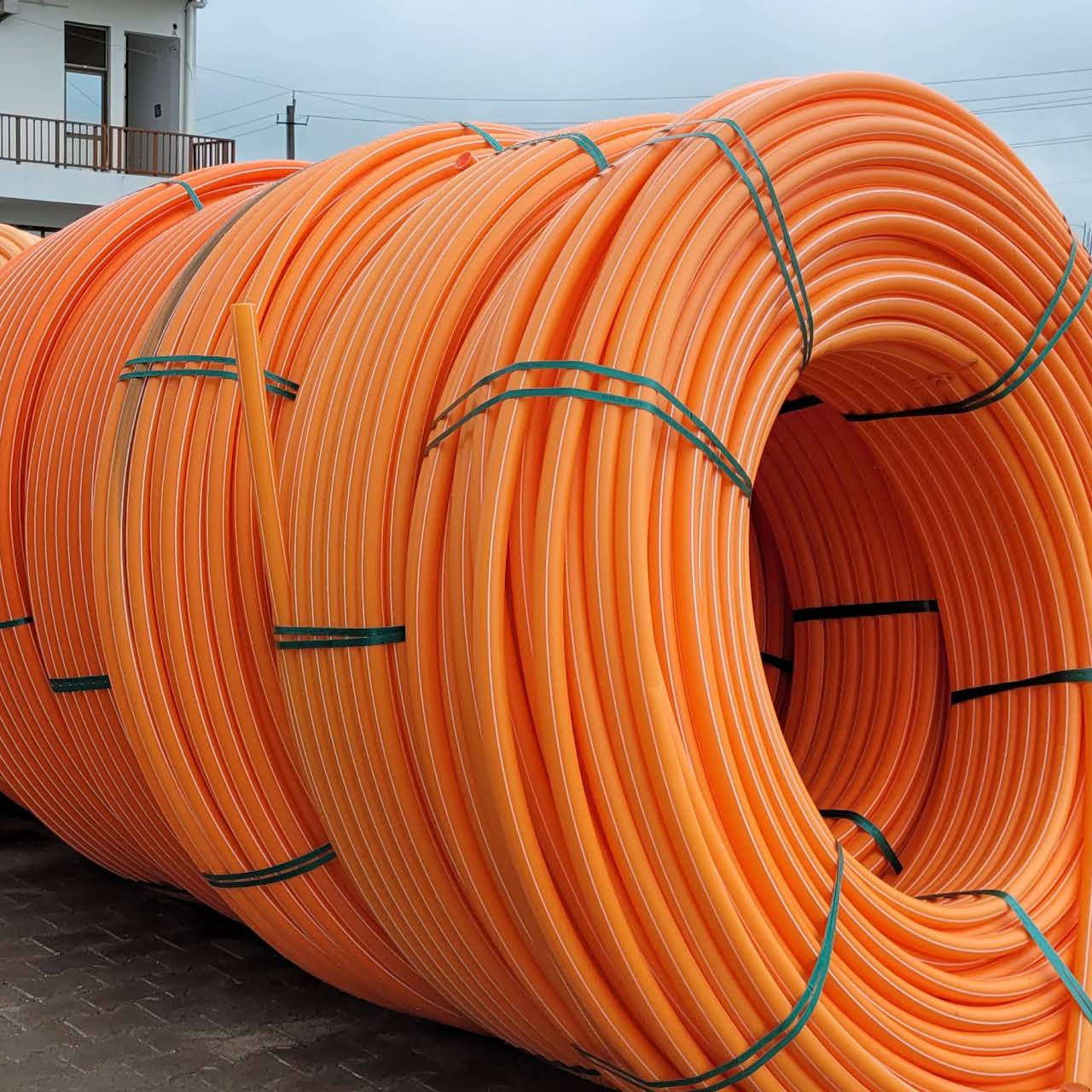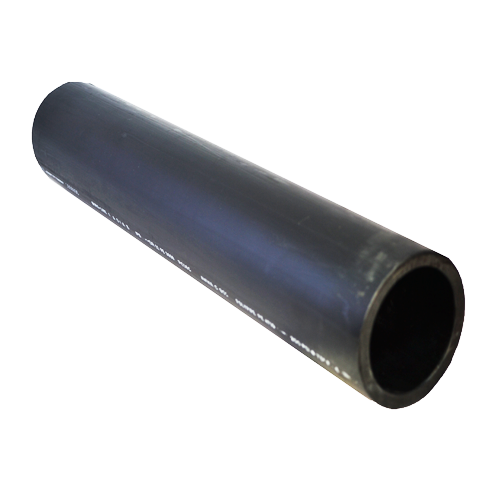A Comprehensive Guide to the Various Uses HDPE Pipeline in Construction and Market
HDPE pipelines have become a pivotal element in modern-day building and construction and industrial applications. Their special buildings, such as resistance to rust and light-weight design, make them ideal for a vast array of usages. From water systems to agricultural watering, HDPE pipelines provide remedies that enhance performance and sustainability. Comprehending their varied applications is important for experts looking to optimize facilities. What details advantages do these pipes offer each industry?
Supply Of Water and Distribution Solutions
Water system and distribution systems are essential parts of metropolitan framework, usually counting on high-density polyethylene (HDPE) pipelines for their sturdiness and efficiency. These systems transportation drinkable water from treatment facilities to consumers, making sure access and safety. HDPE pipelines are favored for their resistance to rust, chemicals, and severe temperatures, which enhances their long life and reduces upkeep costs. In addition, their light-weight nature enables for less complicated installation and transportation, making them suitable for numerous metropolitan and rural applications.
The adaptability of HDPE pipes allows them to be installed in limited rooms and around obstacles, minimizing the need for substantial excavation (Midland TX HDPE Pipe Fittings in Stock). Furthermore, their smooth indoor surface decreases friction losses, enhancing water flow rates. As cities proceed to expand, the need for trustworthy supply of water systems boosts, placing HDPE pipes as a lasting option for modern-day infrastructure tasks. Their proven record makes them a recommended choice amongst engineers and urban organizers alike
Wastewater Monitoring and Treatment
Efficient wastewater administration and therapy are necessary for preserving public wellness and environmental quality. HDPE pipes play a crucial role in this process as a result of their longevity, resistance to corrosion, and capacity to stand up to extreme chemicals. These pipelines are typically used in various applications, including sewer system, stormwater drain, and wastewater treatment centers. Their light-weight nature promotes easier installment and transport, reducing labor prices and time.
Additionally, HDPE pipelines have a smooth indoor surface area that lessens rubbing loss, advertising reliable circulation rates. They are also much less susceptible to leaks and failings compared to conventional materials, making certain that contaminants are had successfully. Their versatility permits for flexibility in numerous soil conditions, making them suitable for varied ecological setups. As sectors increasingly focus on sustainable methods, using HDPE pipes in wastewater monitoring systems lines up with goals for reducing environmental impact and improving source recovery.
Agricultural Watering Solutions
In agricultural setups, efficient irrigation options are important for maximizing crop yields and taking care of water sources. HDPE (High-Density Polyethylene) pipes play an important duty in modern-day irrigation systems due to their longevity, versatility, and resistance to corrosion. Their ability to stand up to high pressures makes them excellent for both surface area and subsurface watering applications, making sure uniform water circulation across fields.
Farmers can use HDPE pipelines in drip irrigation systems, which supply water straight to plant roots, lessening waste and promoting healthy growth. Furthermore, these pipes are lightweight and simple to mount, reducing labor expenses and installment time. Their long lifespan and low upkeep requirements better enhance their allure in farming techniques.
Additionally, HDPE pipes are ecologically pleasant, as they can be reused and do not seep hazardous chemicals into the soil. This makes them a lasting check over here selection for farmers aiming to embrace environment-friendly agricultural approaches while making best use of performance.
Industrial Applications and Procedures
Convenience is a characteristic of HDPE pipelines, making them crucial in various commercial applications and processes. These pipes are extensively made use of in chemical processing sectors due to their exceptional resistance to a variety of destructive materials. HDPE's light-weight nature, incorporated with high tensile toughness, enables for very easy setup and long-lasting efficiency popular settings.
In the oil and gas market, HDPE pipelines play a necessary function in delivering hydrocarbons and gases, many thanks to their longevity and flexibility - American Plastics HDPE Pipe Manufacturing. In addition, they are used in mining operations for the transport of slurry and other materials, where conventional piping systems may fail
In addition, HDPE pipes are progressively made use of in producing facilities for water supply lines and wastewater administration. Their capability to endure extreme temperature levels and stress makes them suitable for a variety of industrial processes. Overall, HDPE pipelines add greatly to performance and safety and security throughout diverse commercial applications.
Stormwater Administration and Drainage Systems
Stormwater management and drain systems are critical components in metropolitan framework, designed to take care of excess rainfall and lower flooding threats. High-density polyethylene (HDPE) pipelines are progressively made use hop over to here of in these systems as a result of their resilience, adaptability, and resistance to corrosion. These pipelines effectively carry stormwater far from booming locations, reducing surface drainage and protecting against waterlogging.
HDPE's lightweight nature promotes much easier installation, lowering labor prices and building and construction time. In addition, its resistance to chemicals and ecological stressors warranties durability and dependability in various environments. Along with conventional drainage applications, HDPE pipelines are also employed in innovative options such as green infrastructure, that includes rainfall gardens and permeable pavements.

Frequently Asked Questions
Exactly How Does HDPE Pipe Compare to PVC Pipe in Price?
In general, HDPE pipeline tends to be extra pricey than PVC pipeline due to its improved longevity and versatility. Long-lasting cost factors to consider, such as maintenance and lifespan, may favor HDPE in specific applications.
What Is the Life-span of HDPE Piping Under Numerous Conditions?
HDPE pipelines typically have a life expectancy of 50 to 100 years, relying on environmental conditions, setup practices, and usage. Aspects such as temperature, soil type, and direct exposure to chemicals can considerably affect their durability.
Can HDPE Piping Be Recycled After Usage?
Yes, HDPE pipes can be reused after use. The recycling process entails melting down the product, permitting it to be repurposed into new items, consequently advertising sustainability and reducing ecological effect connected with plastic waste.
Exist Any Details Installment Obstacles With HDPE Pipelines?
Setup challenges with HDPE pipes include proper jointing techniques, ensuring adequate trench problems, and handling thermal expansion. In addition, competent labor is required to take care of customized devices, which can complicate the installment process in numerous atmospheres.

What Accreditations Should I Search For When Acquiring HDPE Pipelines?
When purchasing HDPE pipes, one should seek qualifications such as ASTM, AASHTO, and ISO, which confirm quality and compliance with industry standards, guaranteeing sturdiness and performance in various applications. - American Plastics HDPE Pipe for Oilfield